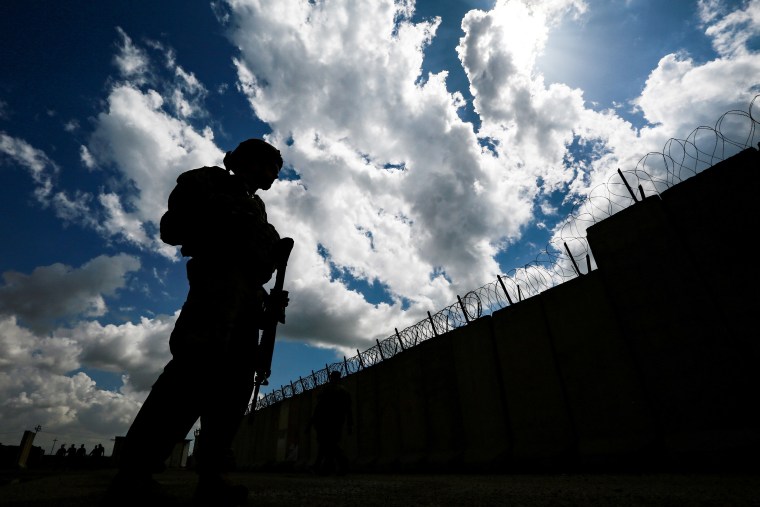Donald Trump's veto pen has gathered dust over much of his presidency. As things stand, the Republican has only exercised his veto power nine times, which is the fewest for a full-term president since Abraham Lincoln.
The first eight times Trump vetoed legislation, the bills returned to Capitol Hill, and Congress failed to override the president. The ninth time is shaping up to be quite different.
The House voted Monday to override President Donald Trump's veto of the $740 billion defense authorization bill, the first vote to override one of Trump's vetoes by a chamber of Congress and a dramatic rebuke by Democrats and members of his own party.
The vote was not especially close. On Monday afternoon, after most House Republicans ignored the president's demands for $2,000 direct-aid payments, most House Republicans again ignored Trump's wishes and voted with Democrats to override his veto of funding for the military. The final tally was 322 to 87, with the majority made up of 212 Democrats, 109 Republicans, and a lone independent. (To override a veto requires a two-thirds majority, which in this case meant 277 votes, which was a bar the House cleared easily yesterday.)
By most measures, it was the sharpest bipartisan rebuke of Trump's presidency, making him appear weak in one of his final legislative fights before exiting the White House.
As we've discussed, at issue is the National Defense Authorization Act (NDAA), which is a massive, annual defense spending bill that funds the United States military -- including the money to pay troops' salaries -- though it's not just a spending bill. As NBC News recently explained, the NDAA "guides Pentagon policy and cements decisions about troop levels, new weapons systems and military readiness, military personnel policy and other military goals."
The pending NDAA is the result of months of hearings and bipartisan negotiations, which the president nevertheless vetoed, effectively defunding his own country's military, because (a) Twitter hurt his feelings, and (b) he's eager to champion the names of Confederate leaders who took up arms against the United States.
The package now heads back to the Senate, where the outcome is less certain. At first glance, the result appears inevitable: Republican-led chamber recently approved the NDAA, 84 to 13, which suggests there's more than enough support in the Senate to override the president's veto.
But the process may not be quite that simple. For one thing, some progressive senators intend to filibuster the bill in the hopes of forcing GOP leaders to hold a vote on $2,000 direct-aid checks. For another, some of Trump's more sycophantic allies -- I'm looking in your direction, Sen. Lindsey Graham (R-S.C.) -- have said they're prepared to side with the president, even if that means voting against military funding.
That said, if the Senate does vote to override the veto -- floor action may come as early as today -- it will be one of Trump's most humiliating failures, brought on by his inability to think ahead and see beyond his petty grievances.

